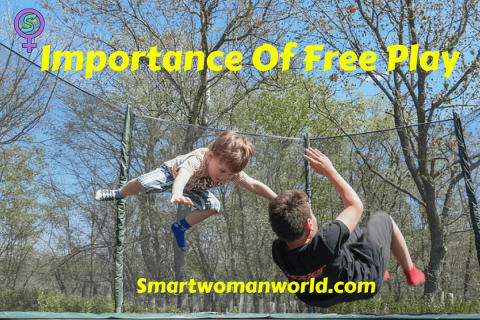Parenting has become more and more difficult today. As technology advances and other things around us become more and more complex, the parenting journey has also become more complex. Parents want to give their best to their children and in this process become children pleasers more than being a good parent. In this article, we talk about How To Raise Happy Children.
Many child psychologists and experts have warned that this kind of new parenting will do more harm to the all-round development of the child. Parenting is not about your child getting A+ grades in his/her academics or being excellent in sports and music class etc., but it means raising a child who will be an asset to the community and society at large. It also means that you are raising a happy child who is comfortable, secure and positive in his/her approach towards life.
Children are great observers and so in their growing up years they imitate and observe everything that is present in the environment. It is thus very important for parents to make the environment conducive to their all-round development. In this process, do not go overboard and do everything according to their will.
[content-egg module=Amazon template=grid]
How To Raise Happy Children
Children have become the most important people in the family.
Unfortunately, children have become the most important people in the family. Parents revolve their entire life around their children. It is good to be involved in your child’s life, but over involvement can have serious negative effects in their life. Remember you cannot live their lives.
If you remember in our growing up years, our parents were the most important people in our lives. We looked up to them, took their advice and did things that pleased them. Respect came naturally. Nobody told us to respect our elders, but we just knew the boundaries and we all did very well.
What has happened now? Suddenly children have become the most important people in the family. Due to the lack of time, children are showered with material things like weekend meals, movies, toys etc. They feel that it is their right to receive these things. The result is that we are submitting to every demand they make, leading to very self-centered individuals.
Ensure that you carefully weigh their needs and demands and give in appropriately. There should be times that you should say “No”, so that your children value things.
Be careful of your own behaviour.
Children are great observers. They observe almost everything around them. Most of the time, we parents firmly tell them, “Do as I say”, but they are observing what we do as well. That matters more than what we say.
For e.g. Children of parents who are obese, are more likely to be obese due to unhealthy lifestyle habits, children of smokers are more likely to smoke than others. Research has also indicated that children from broken homes often nurture anger, strife, bitterness and depression.
It is plain and simple that if you want your child to be kind, generous and respectful, then you need to do the same in the environment around you.
Dealing with irrational behaviour.
Children often become emotional and release their anger by behaving irrationally. They may shout, cry loudly or just hit someone. This is their way of showing their emotions. Though it is natural for you to get upset, it is advisable to refrain from punishing the child.
It is important to empathise with your child and help them understand their emotions. Sit and talk to them about their behaviour. Allow them to calm down before you begin any corrective conversation. Sometimes just leaving them alone or ignoring them for some time will cool them down and then you can talk to them about their behaviour.
Shutting down their emotions or giving them tough punishments will only alienate them and this will have a serious effect in his/her all-round development.
Different parenting styles for different children.
Most of the time, we just stick to the same set of rules and advice for all children. Every child is unique and different. Many parents will agree that their children are so different from each other. What works for one will not work for other. For e.g., your elder one will always look at you for encouragement and support and will be shy in nature, while the younger one will be bold, outgoing and will prefer doing things independently.
It is very important to understand, adapt and learn their unique personalities and then customise your parenting according to their individual needs.
Always be truthful in your actions.
Many times parents lie to children by distorting the reality, in order to protect them from any pain. Trust is an important factor in a child parent relationship.
There may be times when you need to tell them about the harsh truth of the death of a close relative, pet etc. It is important to tell them the truth in an age appropriate way.
Also help them to overcome their emotions of fear, anxiety and confusion by calming them. Most of the time during exams they will be stressed and fearful and it’s time to reassure them. Do not ignore their emotions but help them to deal with it positively. When you have built up the trust factor in your relationship, you can always guide them in any difficult situation. Also, parents should be the first people that children turn to in case of confusion or questions. Give them the comfort that you are always approachable.
Keep instructions clear and easy to follow.
Always keep some standard house rules which are clear and easy to follow. There will be instances when these rules will be broken but being parents, give your children second chances.
Explain to your children the importance of adherence to house rules. Some of the house rules that we try to follow are:
- Respecting elders even when you disagree with them.
- Being kind to those around you, especially the underprivileged.
- Adhering to study time.
- Clearing the toys and study table.
- Family time which includes praying and eating together.
Your child is not going to be good at all times, but if they behave properly majority of the time then it is good enough.
Do not try to be your child’s friend but rather be a parent.
Your child will have many friends and does not need any more friends, but they need parents. It is important to balance your relationship with them. Teenage and adolescent years are the most challenging years wherein every teen wants to try out different things like alcohol, drug abuse etc. It is important that your child is made aware of the consequences of these actions.
Many times peer pressure leads them to make wrong decisions. You can step in and help them recover by reassuring them with your love and support.
Finally, there is no one way to become a good parent. Parenting is a journey and we all learn from our own mistakes. Many times we will find our children in complete contrast to our way of thinking or upbringing. For e.g., a hardworking father may have a lazy child, a bold mother may have a shy and laid back child. Every person is unique and so it is important to work our way around these differences and help foster a good and fruitful relationship which will help us raise responsible children.




